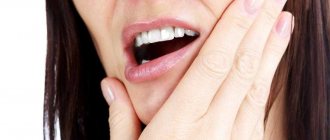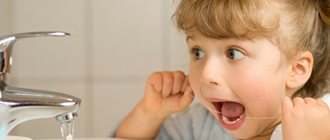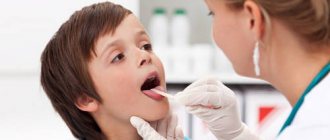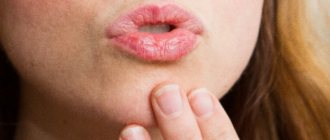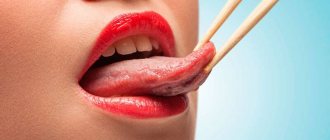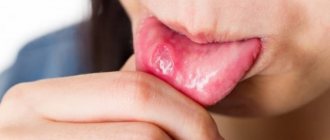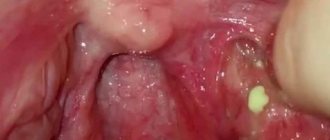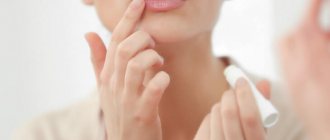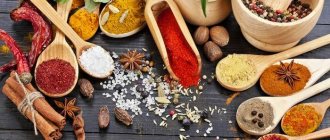Salivation is a natural physiological process that occurs throughout a person’s life. Special glands located in the oral cavity are responsible for it.
They are capable of producing about 2 liters of saliva per day. Sometimes the amount of saliva produced increases sharply, which significantly affects the quality of life. This is especially common in childhood.
Increased salivation in a child can be caused by various reasons, both natural and pathological. To understand this issue, it is necessary to consider what role saliva plays in the life of a child’s body.
Functions of saliva
Firstly, it is involved in the digestion of food, making it softer and helping it move through the esophagus. The enzymes contained in saliva are capable of breaking down starch and fats. Thus, food enters the stomach already partially digested.
Secondly, saliva plays a protective role, preventing the mouth from drying out and having a bactericidal effect. It helps to wash away food debris, and with it bacteria. Saliva neutralizes many acids and alkalis, protecting tooth enamel from their aggressive effects. It is also able to strengthen the enamel, nourishing it with important microelements (fluorine, phosphorus, calcium).
Thirdly, it helps make teething less painful by reducing inflammation in the gums. And finally, in the first months of a baby’s life, saliva has a special viscosity, which makes breastfeeding easier during natural feeding.
Causes of increased salivation in children
Excessive drooling is scientifically called hypersalivation. In children, there are clearly visible age periods when it can occur most intensely.
Important! There is a distinction between true and false hypersalivation.
True hypersalivation is caused by malfunctions of the salivary glands, and false hypersalivation (also called reflex) in childhood is associated with more serious disorders in which swallowing saliva becomes less frequent.
For example, if the sensorimotor arc malfunctions, the interaction between the brain and the oral cavity is difficult. The child's number of spontaneous swallows is reduced, which creates the appearance of profuse drooling. Depending on the age, the causes of increased salivation in children may be different.
Causes of drooling can be physiological and pathological
Beginning ARVI
Sometimes excessive salivation, accompanied by regular attempts by the baby to put his fingers and fists in his mouth, indicates the onset of an infectious disease such as ARVI, flu, sore throat, etc. In this case, the child has a fever, nasal congestion or mucus discharge from the sinuses. Many babies begin to sneeze and cough.
The main function of saliva is protection against pathogenic microbes and bacteria. This is what causes the increased activity of the salivary glands in babies 2-4 months of age against the background of the onset of ARVI and other inflammatory processes localized in the oral cavity.
In this case, the main help lies in the fight against the causative agent of the disease. The cleanliness of the baby’s hands, pacifiers and toys should be taken with special care during this period, as there is a high risk of harmful microorganisms being introduced into the baby’s body.
Newborn period
In newborn babies, salivation is normally absent due to the underdevelopment of the salivary gland apparatus. However, often a mother may notice how, in the first hours of a child’s life, a colorless liquid, very similar to saliva, is actively secreted from his mouth.
Most often, this is how amniotic fluid comes out, which the baby managed to swallow while passing through the birth canal. Normally, this phenomenon should stop a few hours after birth. If drooling continues longer, it is better to inform your pediatrician (neonatologist) about this in order to exclude serious health problems.
Pediatrician appointment prices:
| TYPES OF MEDICAL SERVICES | Cost, rub. |
| Examination of a child by a pediatrician to obtain a certificate + certificate | 1950 |
| Visit of a pediatrician, consultation at home (Moscow) | 5400 |
| Consultation with a pediatrician at home for the second child | 1950 |
| Patronage for a newborn / gymnastics and swimming at home (1 session, pediatrician Kapina A.V.) | 6300 |
Drooling at 2–3 months
At the age of about 2 months, a baby may experience profuse salivation, caused by the fact that the salivary glands finally begin to work at full capacity. It is at this age that a child may need his first bib to protect his clothes from getting wet.
The mother also needs to very carefully monitor the condition of the child’s skin, especially the area around the lips and chin. Excessive saliva can irritate baby's delicate skin. To prevent this from happening, it is recommended to lubricate the area around the mouth with baby cream or Vaseline.
Inflammation of the submandibular salivary gland
Closer to 3 months, children become active explorers of the world around them and taste everything. They put fingers, toys and any other objects at hand into their mouths.
The baby's body becomes acquainted with new microflora, which leads to increased secretion of saliva, which performs a protective function. At this age, increased saliva production can also occur against the background of an acute respiratory disease.
Breathing through the nose becomes difficult, and the child has to breathe through the mouth. This causes the nasopharynx to dry out and reflexively release a larger amount of saliva than usual, which moisturizes the air and disinfects it.
How to help muscles?
Exercises for the speech apparatus are useless while the muscles are too relaxed or, conversely, tense. Therefore, before classes you should massage the facial, neck and shoulder muscles. First of all, these are light strokes; sudden movements cannot be made. Lay your baby down so that his head is on your lap, at right angles to your chest. Movements are made with both hands on both sides of the face simultaneously in the following directions:
- from the middle of the forehead to the temples;
- from eyebrows to hairline;
- from the middle of the forehead along the cheeks to the neck and shoulders;
- from the earlobes through the cheeks to the nasal wings;
- from the corners of the mouth, first to the middle of the upper lip, then to the middle of the lower lip, then to the wings of the nose.
If the muscles are very tense, then the movements should be very light all the time, but if they are relaxed, then vigorous kneading and gentle stroking should be alternated.
This is general advice for parents of children with dysarthria. Specific sets of games and exercises and medications, if necessary, are selected only by a speech therapist and a neurologist, based on the characteristics of the child’s condition.
Publication date: 10/03/2019. Last modified: 01/13/2020.
Teething period
Teething usually begins around 6 months of age. The child becomes whiny and irritable. The process of tooth extraction is accompanied by pain and the formation of wounds on the gums. They can greatly disturb the baby, bringing him a lot of suffering.
Salivation helps make pain less intense: saliva has an anti-inflammatory and calming effect. Teething is greatly extended over time and sometimes lasts up to 2 (and even 3) years.
Important! Increased salivation up to 2 years of age is most often caused by natural causes and is physiological.
Increased salivation after 5 years
If a symptom bothers a child at an older age, after 5 years, then this may be a cause for concern on the part of the parents. There are a number of reasons why saliva is produced in large quantities:
- inflammation in the oral cavity (stomatitis, gingivitis, candidiasis);
- infections of the upper respiratory tract and nasopharynx (for example, with adenoids, copious amounts of saliva are produced at night and prevent the baby from sleeping);
- disturbances in the gastrointestinal tract (gastritis, duodenitis, pancreatitis);
- helminthic infestations;
- poisoning with drugs, as well as toxic substances and household chemicals (a life-threatening condition - requires immediate medical attention);
- diseases of the nervous system (especially with damage to the central nervous system, some forms of cerebral palsy, congenital malformations).
If there is increased drooling of any etiology, it is best to show the child to a doctor. Only he will be able to determine the true cause of the symptom and, if necessary, prescribe additional examinations.
Why do you drool in your sleep: the main reasons
- We call saliva the secretion produced by the salivary glands, and in a healthy state the body regulates its quantity. The main task of saliva is to soften food and form it into an amount that can be swallowed without difficulty. Salivary enzymes work during digestive processes, regulating the level of acid balance in the mouth, protecting teeth and participating in the regeneration of mucous membranes. Also, it is in the saliva that poisonous toxins often enter, and spitting helps remove them from the body with the help of saliva.
- There can be many reasons for such salivation. These include problems with the intestines or nervous system, sore throat, and defects associated with dental features, including malocclusion.
- Increased salivation (this phenomenon is called hypersalivation ) can be triggered by taking certain medications, the so-called bulbar syndrome. And even the alcohol you drank the day before is quite capable of becoming the reason why you “drool” at night.
- If this phenomenon becomes regular, the best thing you can do is contact your primary care physician, who will prescribe a set of necessary studies and tests. Based on them, the true cause of the problem will be determined, which, if necessary, will be eliminated by a specialized specialist.
What is the cause of drooling
Intestinal diseases
- Most often, if drooling occurs during sleep, the problem is caused by gastritis , in which acidity increases, or by an ulcer. In such cases, drooling is a protective reaction of the body, which is expressed in the fact that the salivary glands begin to work more intensely, helping to reduce the amount of gastric juice.
- A larger than usual amount of saliva secreted acts as a soothing agent on the acid in the esophagus , and thereby reduces the sour or bitter taste in the mouth.
Problems with the nervous system
- Adults also drool during sleep in post-stroke conditions characterized by improper cerebral circulation, in Parkinson's disease, and also as a consequence of multiple sclerosis.
- Usually in such cases, fairly intense salivation is recorded. Treating it for the diseases described above is quite difficult - it is a long process that is carried out under the supervision of a neurologist.
Angina
- If a person has a sore throat, then, in addition to weakness and high fever, he experiences a sore throat with red and swollen tonsils. But the fact that all these unpleasant symptoms also cause an adult to drool during sleep is a positive thing, since it indicates that the body is fighting the disease.
- Drooling at night may last for about a week. This is how the body reacts to inflammation caused by pathogens, using saliva to remove germs and bacteria from the throat.
Presence of dental defects
- Unfortunately, small children whose oral cavity is affected by ulcerative stomatitis . It hurts the baby to chew, swallow, brush his teeth, and the mucous membrane is covered with plaque formed by fungi.
- The child has to constantly keep his mouth slightly open so as not to experience additional pain. He does this in his sleep, as his mouth fills with saliva. Thus, as with sore throat, saliva is a protective reaction to the fungus. Therefore, the child drools while sleeping.
- The cause may also be an inflammatory process in the mouth due to non-compliance with hygiene rules. An example of such inflammation is periodontitis or gingivitis, as well as the occurrence of purulent formations on the periodontium . And in this case, with the help of saliva, the body tries to resist infection. There is no need to talk about the need to visit a doctor in this case.
Incorrect bite formation
- With an incorrect bite, a person in a dream is unable to completely close his mouth, into which a larger than usual amount of air enters, which provokes drying of the mucous membrane. As a result of this drying, saliva is released, designed to moisturize the oral cavity.
- This happens several times a night, as saliva continues to be released as it dries. The solution to the problem can only be correcting the bite.
This happens with an incorrect bite
Taking medications
- Most often, salivation is promoted by taking antiviral drugs containing ascorbic acid.
- To mitigate this side effect, it is better not to take such medications before bedtime.
- It is also possible to revise the dosage downward, but this should be decided solely by the attending physician.
Bulbar syndrome
- This is a rather serious condition because it occurs against the background of damage to the nerve cells of the brain. One of the areas of the mouth is affected by paralysis, the speech apparatus is damaged and, as a result, saliva flows uncontrollably.
- The more cells are damaged and the more severe the patient's condition, the more saliva is released.
State of alcoholic intoxication
- Alcohol, as is known, greatly affects the functioning of the brain, some centers of which begin to work differently, and in particular, the department that controls the amount and time of saliva secretion is inhibited.
- An adult drools involuntarily and intensely during sleep. And until alcohol is removed from the body, it is not possible to somehow affect salivation.
Adults drool during sleep: other reasons
- In addition to the most common causes of drooling during sleep listed above, nocturnal drooling can also be associated with other pathological conditions. Among them are problems with blood vessels, malignant tumors and the use of radiation therapy methods for their treatment, depression and thyroid problems, progressive polio, and the presence of parasites in the body.
- Also, increased salivation at night can be caused by overeating at night (especially if the food was quite heavy for the stomach) or too much sleep, during which a person completely relaxes all muscles.
There are quite a lot of reasons


